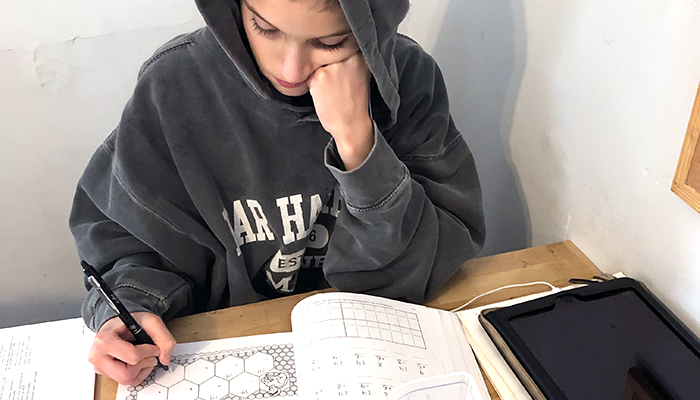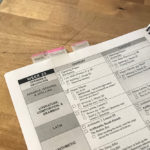
*This post contains affiliate links for Memoria Press products. No other affiliate links are present. All opinions are my own.
Ever since he started at age 7, our youngest boy has been convinced that school is “too hard,” “takes too long,” and is “really boring.”
I couldn’t exactly blame him for this outlook.
He started Kindergarten just before his 7th birthday (October baby); but after a year of reading instruction, he was still sounding out every word.
At age 8 we repeated Kindergarten with a complete program and things seemed better; but he still wasn’t fluent.
At age 9, we started first grade and the revolt began. Every. single. day was a fight over school. He was constantly in tears and I was at the end of my rope.
I needed to know what we were dealing with, so I had him take the DORA online reading assessment. It showed he was still at an early to mid-Kindergarten level for phonics and reading.
We then placed him in a curriculum specifically developed for struggling learners and children with special needs. I also:
- worked with him one-on-one to help him stay focused
- slowed the pace even further to help solidify concepts
- moved his work space so he was less distracted
- shortened assignments
- reduced the amount of writing, doing a lot orally
- began occupational therapy for previously missed physical issues
But he still complained daily about school.
I continued supporting him and we instituted consequences, but I spent most of my days trying to coax him to work.
At age 11, my husband took over, working with our son every morning in our home office. They woke up at 6:30 every morning, started school by 7, and were usually finished by 9. (And my husband made him do all the writing in math!)
Amazingly, our son was happy with this setup. He finally knew that he really could do the work and that it really didn’t take all day.
But when we transitioned him back to working with me, the complaining started again.
- He said it was easier to focus in the office, so I set up a “cubicle” with a science fair board.
- Friends and family said he needed a goal to work towards, so I set up a marble jar, allowing him to earn an inexpensive hobby supply he wanted.
Everything went beautifully — for the first week.
A wise mentor once saw that I have a hard time establishing boundaries with my children. After all, there’s a difference between supporting our children and carrying them.
“It has to be their problem”, she said. Our job is to show them how to solve the problem, and then hold them accountable for following through.
Her words rang in my ears as I fought back a strange combination of anger and tears. I pulled out my son’s lesson planner, highlighted assignments I knew he was completely capable of doing on his own, and handed it to him.
“It’s on you,” I said with quiet conviction. “You are not allowed to do anything until the highlighted items are done — but I’m not going to sit here while you do them.”
The rest of that week, he pulled out his planner each morning and got to work.
That was November.
He now knocks out his independent work in less than an hour. He’s diligent during our one-on-one lesson time. He doesn’t complain about writing, or about having to do all the pages in math. He even asks if I can give him more independent work. In short, he’s enjoying school for the first time in his life.
I just needed to understand my job description.



Leave a Reply